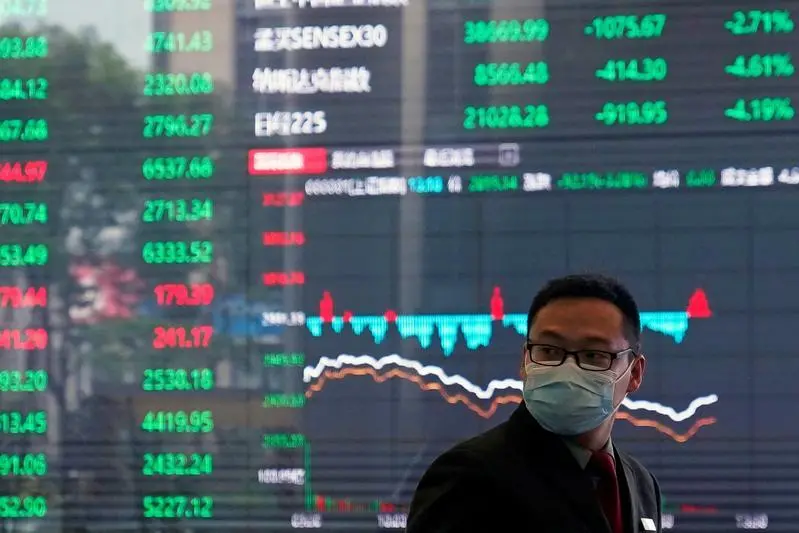PHOTO
Last week’s emerging markets’ rally was nothing short of surprising: The MSCI Emerging Markets Currency Index last week recorded its strongest weekly advance since 2016, with improving economic data.
The US dollar retracted amid trade uncertainties and anti-racism protests which was good news for some emerging markets.
Emerging market stocks posted their biggest gains in more than eight years last week. The rally was induced by most major economies starting a reopening in the aftermath of the coronavirus disease (COVID-19) pandemic lockdowns and excess cash looking for a home after meager investment opportunities amid the general lockdown.
What was particularly interesting was that Latin American markets fared particularly well, despite having become the new center for COVID-19 infections. The rationale was that they were more isolated from the US-China trade frictions than their Asian counterparts. Exchange-traded funds (ETFs) listed in the US, which invest in Asian bonds, lost $1.4 billion during the two weeks leading up to May 29, while Latin America-bound ETFs gained $60 million in funds over the same period.
That all sounds very good. Alas, emerging markets cannot be lumped into one group. There are the oil exporting countries who gained attractiveness due to the recent rise in oil prices. There are the ones with current-account surpluses and those with current-account deficits. There are the trading nations of Asia and the resource exporters in Africa.
Before COVID-19 ravaged the global economy some of them such as Saudi Arabia and the UAE stood on sound footing going into the crisis. Others, including Nigeria and Venezuela, were on weak ground even then.
There is also access to the fuel that lubricates international financial markets: The US dollar.
The dollar is still the predominant currency for international transactions, but not all countries have the same access to the US currency. The US Federal Reserve’s (Fed) temporary dollar swap lines cover 14 central banks, including those of Brazil, Mexico, South Korea, and Singapore. They do, however, leave Turkey, South Africa, Nigeria, Indonesia, and others out of the system, despite those countries having dollar-based financing needs.
While current-account deficits may become less of a benchmark in a world of low interest rates and an expansive monetary policy by the Fed, they still matter in the long run. This is evidenced by the steepness of the yield curve for most emerging market bonds, meaning that investors are more comfortable in shorter than longer tenors, which constitutes its own gouge for long-term risk appetite.
There are also many emerging economies which are crushed under a heavy debt burden. The G20 and the International Monetary Fund (IMF) alongside the World Bank have approved a debt relief program for the poorest 75 countries, which is crucially important. The World Bank also approved a $160 billion package for those countries — of which roughly one-third will be dispersed as grants.
Nice as this program may sound, it loses in importance unless private sector creditors join in. Chinese creditors are particularly important in that context as are creditors from GCC countries.
Emerging markets have always been volatile and the domain of risk takers. In times of COVID-19, little has changed in this paradigm.
While excess cash in the pockets of international investors may result in cash injections into emerging markets, investors would be well advised to look carefully into the underlying fundamentals. They are: What are the macroeconomic fundamentals of these creditors? How integrated are they into global supply chains and what does that mean with respect to US-China trade frictions? And what is their access to the Fed’s dollar swap lines, etc.?
In other words, emerging markets may constitute big investment opportunities. However, these opportunities depend on the relative performance of the dollar vis-a-vis emerging market currency as well as the fundamentals in those economies.
Anyone doubting that wisdom may wish to look at recent developments in Lebanon. Also, while Egypt had its problems, over the weekend the government reached a working-level agreement with the IMF for a $5.2 billion standby arrangement.
• Cornelia Meyer is a business consultant, macro-economist, and energy expert. Twitter: @MeyerResources
Copyright: Arab News © 2020 All rights reserved. Provided by SyndiGate Media Inc. (Syndigate.info).





















